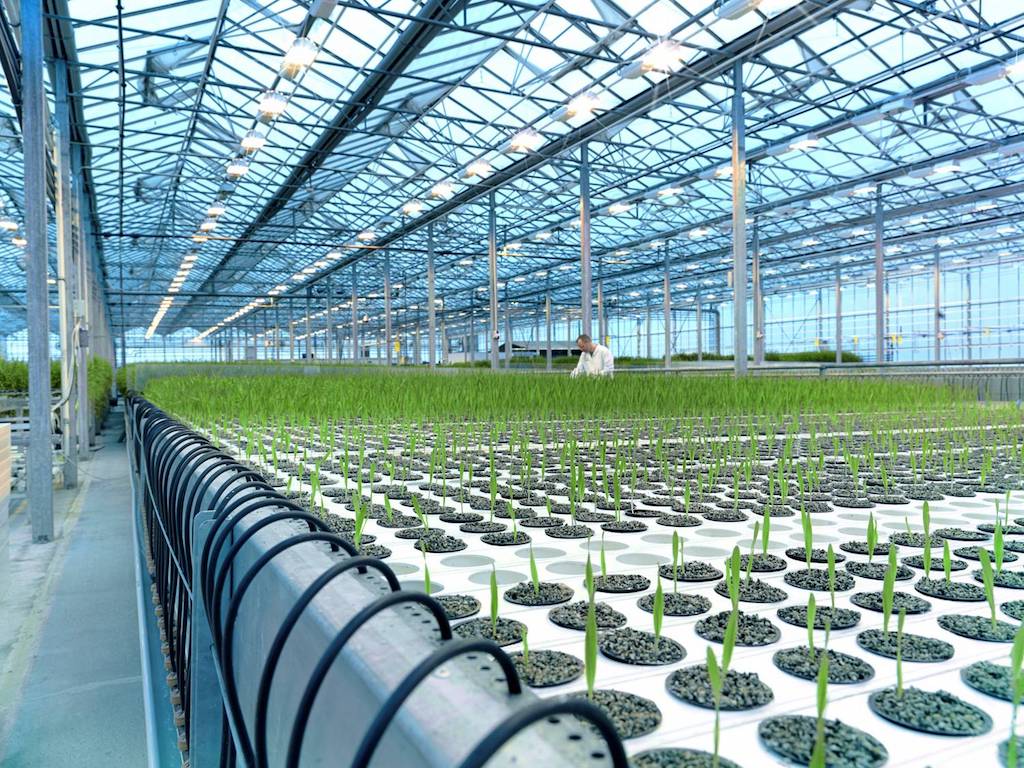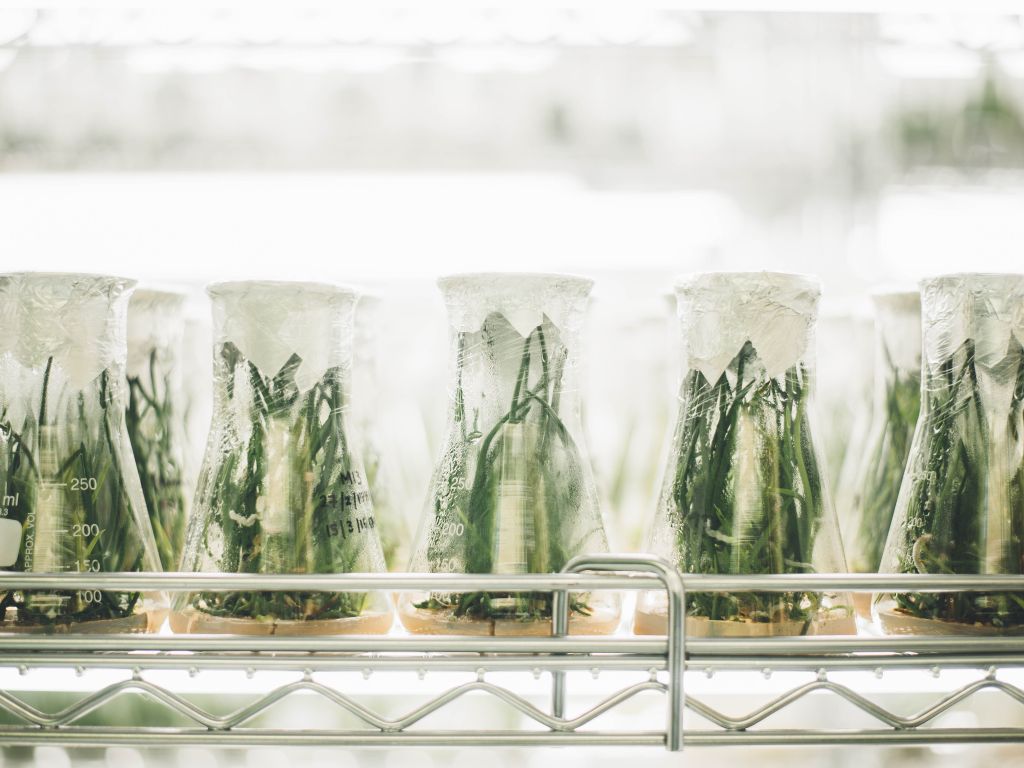4 Mins Read
In the race to clean up the food system, molecular farming is emerging as one of the protein industry’s most viable contenders.
Molecular farming was first demonstrated more than 30 years ago when scientists produced a recombinant antibody and human serum albumin in transgenic plants and cell cultures. The tech has since expanded its reach with a number of companies working to utilize and commercialize these proteins to create a more sustainable food system.
What exactly is molecular farming?
In simplest terms, molecular farming is producing proteins with plants instead of animals. Plants are modified so that their cells replicate the desired proteins, and are then harvested from the leaves or other plant tissues.
Molecular farming is seen when microorganisms infect plants, transferring some genes in the process. Scientists use similar methods to give plants new instructions for creating proteins.

Why is molecular farming used?
Companies are turning to molecular farming for a number of reasons. It’s been hailed as a viable solution to producing vaccines and other necessary pharmaceuticals. It’s also being hailed as one of the best steps to shift our food system away from carbon-intensive animal products and toward more sustainable alternatives.
Benefits of molecular farming
Just like we’re seeing benefits from other meat and dairy successors both in the health and quality of the food to the smaller environmental impact, molecular farming offers similar benefits. These advances in food tech also hold the promise of a cleaner, more sustainable, and more efficient food system.
Molecular farming companies
The molecular farming landscape is growing rapidly. These are a few of the companies leveraging it to transform the global food system.
1. Miruku
A New Zealand-based future food company developing advanced dairy proteins in plants, Miruku emerged from stealth mode last spring with an oversubscribed $2.4 million Seed investment round.
“Our goal is to provide nutritious and functional animal-free dairy, economically,” Miruku’s CEO Amos Palfreyman said in a statement last spring. “The Miruku team is amped to have been joined by a special set of local and international institutional food tech investors backing our vision of delicious and ecologically sustainable food production, and of course our growth plans.”
2. Bright Biotech
U.K.-based Bright Biotech is working to make plant-based affordable recombinant proteins for R&D, therapeutic, cosmeceutical, agri-food, and industrial applications. It raised $3.2m last November in an oversubscribed Seed round.
The company says it uses “game-changing innovative technology” which uses chloroplasts to express high amounts of high-value proteins in plants. The company is currently producing and supplying recombinant growth factors to the R&D sector.

3. Mozza
Mozza says its mission is to make cheese from plants that’s indistinguishable from cheese that comes from animals. “It’s not nut cheese. It’s not soy cheese. It’s cheese made from the same proteins found in cow’s milk, but produced in plants rather than in a cow,” reads the Mozza website. And, the company says, because it’s dairy cheese, it will melt like dairy cheese, stretch like dairy cheese, and taste just like conventional.
4. Nobell Foods
Expect to hear the name Nobell Foods a lot more in the near future. The company recently raised $75 million to bring its molecular-based dairy proteins to market. The company uses a patented approach to making dairy from plants — a process that involved more than four years of research and development from founder Magi Richani, an engineer by training. Richani has tapped into caseins, the proteins in cheese that give it its texture and flavor. The company creates these key dairy proteins from soybeans for cheeses that it says taste, smell, melt, stretch, and even age like those made from animals.

5. ORF Genetics
Iceland’s molecular farming company ORF Genetics sells growth factors to cultivated meat companies. It developed Orfeus, a barley grain based vehicle for recombinant protein production. ORF’s portfolio includes growth factors for the stem cell research market, the skincare market, and cultivated meat. “We are confident that ORF Genetics has the perfect production platform to drastically reduce the cost of growth factors in your cell-cultured meat production and to provide the quantity of growth factors required,” Liv Bergþorsdottir, CEO of ORF Genetics, said in 2020.
6. Tiamat Sciences
North Carolina-based biotech startup Tiamat Sciences raised $3 million in Seed funding in 2021 for its proprietary plant molecular farming platform. It says using plants is less costly than bioreactors but produces the same or superior quality protein.
“Our technology can help to promote animal-free alternatives not only for food but also for the pharmaceutical industry,” France-Emmanuelle Adil, founder and CEO of Tiamat Sciences, said in a statement. “Plants are a great system to work with; they grow fast, are small water and energy consumers, and they are compostable. The technology offers flexibility with production for a diversified product portfolio.”



